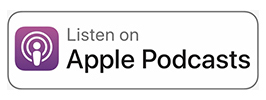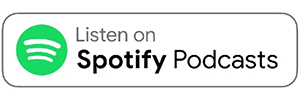What does ‘house poor’ mean?
Being ‘house poor’ is defined as living paycheck to paycheck in order to pay off your mortgage.
While you technically can afford it, you don’t have enough leftover to save or invest with. Essentially, you forgo the ability to be financially comfortable and spend money at your discretion.
Mortgage expert Ivan Simental explains why it’s one of his favorite topics to educate friends and clients alike on a recent episode of The Mortgage Reports Podcast. Here’s what he had to say.
Verify your home buying eligibility. Start hereListen to Ivan on The Mortgage Reports Podcast!
Why borrowers become house poor
Falling into this predicament as a home buyer can actually be pretty easy.
People often associate ‘best’ with whatever is the biggest or most expensive. Under this mindset, a prospective home buyer would try to stretch their budget as much as possible.
When you’re in the market to buy a house, your loan officer will help figure out what your maximum purchase price can be. It’s a calculation based on your pre-tax income and maximum debt-to-income ratio (DTI) and doesn’t account for anything else in life you would have to pay for.
“The good ones will,” but most loan officers won’t clarify that caveat because a “higher purchase price means more commission money,” Simental states.
Lenders typically allow a maximum DTI of 45% but could go up to 55%, depending on your mortgage program. Although, you shouldn’t buy the most expensive house you qualify for, even if you technically are able to, Simental advises.
Find your lowest mortgage rate. Start hereHow can you avoid being house poor?
Fortunately, as easy as it is to become house poor, eschewing can be just as simple. Simental provides two strategies for borrowers to use; one that requires working backwards and the other that goes down the road of “house hacking.”
Once you know the maximum monthly mortgage payment you’re approved for, he recommends doing some quick math with your loan officer to see how lower payments would impact your home buying budget.
“You can afford $2,000 [per month] but you don’t want to pay $2,000 [per month],” Simental said. “You drop that down to see how much you can afford if your mortgage payment was $1,200 and what that correlates to in a purchase price.”
Another option would be to house hack, or have others pay off your mortgage by renting out your rooms. This is a strategy Simental wishes he deployed when he was younger.
Whether down the road or right after purchasing, you can talk to your loan officer about comparable rents in your area to see how much you could realistically charge. If you’re comfortable with other people living in your house, it could be a great way to cut down your mortgage or even make a profit.
Advice for borrowers
Buying a home is usually the largest monetary decision of a person’s life. That makes it paramount to purchase something that won’t leave you financially strapped.
Simental advises to go below the top of your home buying budget so you can still save, live, put away for an emergency fund or whatever your goal is.
If you’re ready to buy a house, talk to a lender to see what interest rate you qualify for and how much home you can comfortably afford.
Time to make a move? Let us find the right mortgage for you

